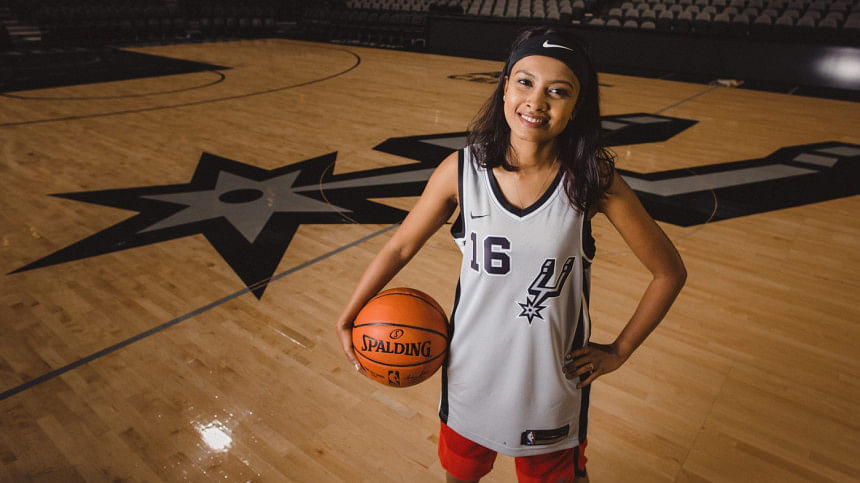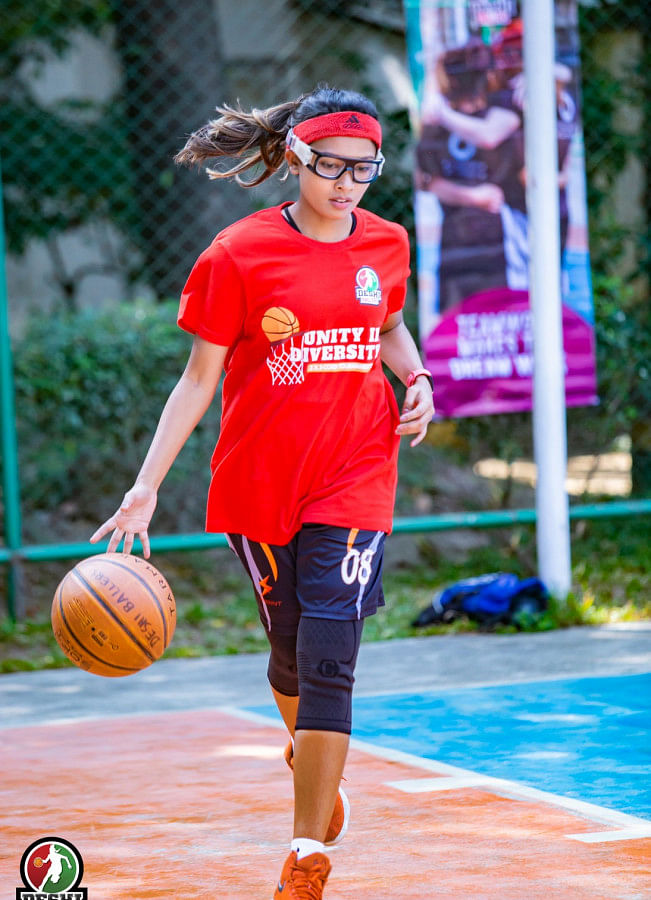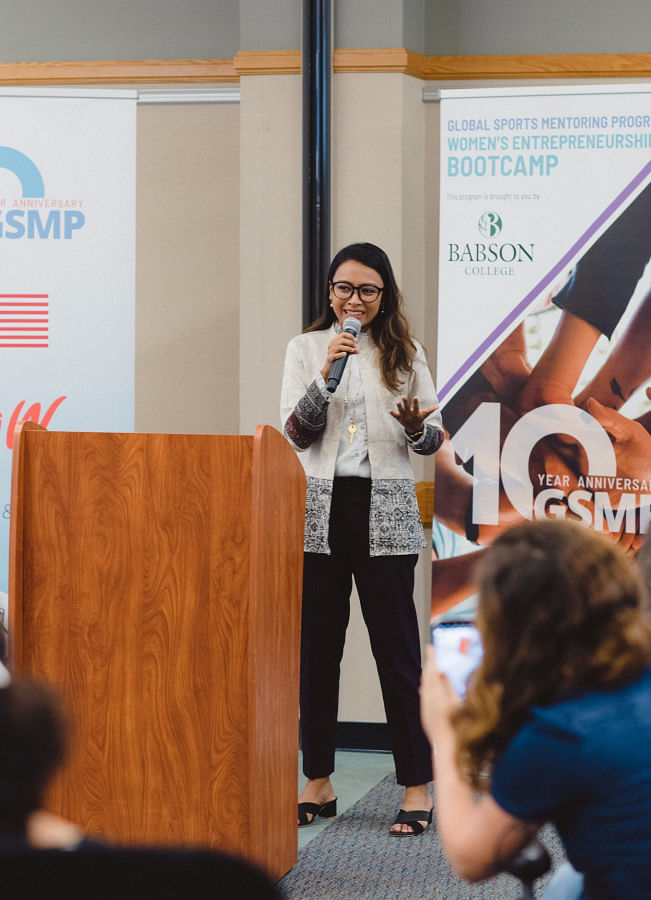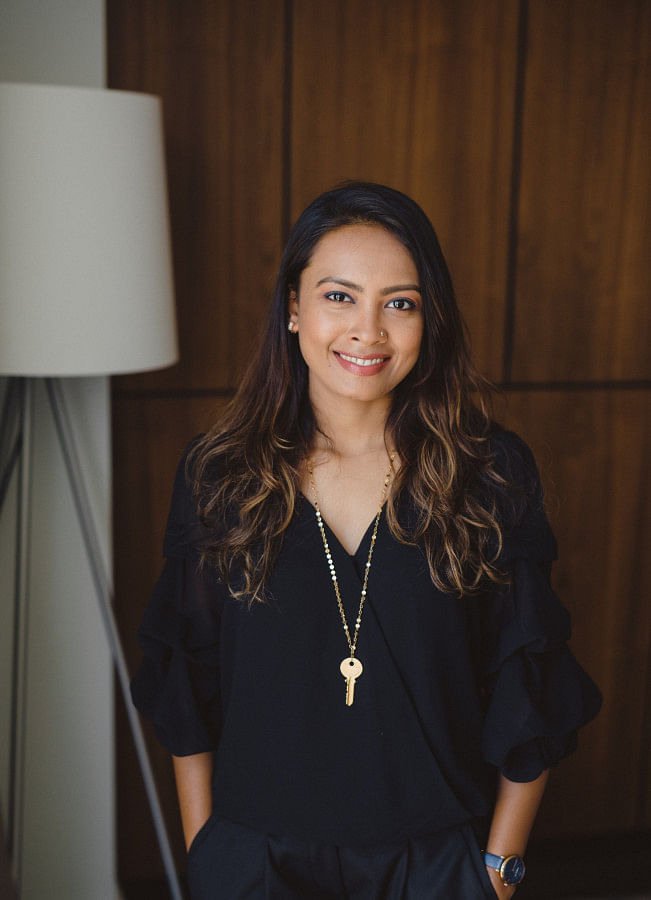Basketball isn’t for girls? Ashreen Mridha says otherwise

Ashreen Mridha never dreamed of basketball. It found her in the echo of bouncing balls on concrete, in the rustle of jerseys worn by senior girls at school.
"I never saw the game on TV," she recalls. "All we saw back then was cricket." But what Mridha saw on the sidelines of the school court was more powerful: women leading, playing, commanding space.
She didn't want to be famous. She wanted jersey number 8.
That number belonged to a girl, the team captain, whom Ashreen idolised as a fourth grader. "I used to watch her play and think – when she retires, I want to wear her jersey." Years later, when she finally made it into the school team, jersey number 8 was hers. It still is – tattooed on her leg.
But Ashreen's story doesn't follow the polished arc of underdog-athlete-turned-champion. It moves differently. At times, it limps along due to ankle injuries and federation politics. It stalls –when budget excuses and marriage became reasons to push her off the court. It fights back through Deshi Ballers, a movement she co-founded with Gulnahar Mahbub Monika, not for branding or buzz, but because the system left her no other option.

"Wrong sport," they told her
Ashreen was around 18 when she was called into Bangladesh's first women's national basketball team. "People told me I'd picked the wrong sport," she says. "Cricket or football – they'd at least heard of those. But basketball? Who plays that here?"
Still, she stayed. Not because it was easy, but because no one else was staying.
At the height of her playing years, she wasn't paid. Not once. "Ten years on the national team –no salary, no allowance. We paid entry fees ourselves. We rented fields to train. The federation just didn't care."
And they didn't hide it either. There were no women's leagues. No dedicated coaches for girls. No physios, no doctors, no recovery plans. When she got married at 26 – still in peak form – she saw it happen in real time. "The moment you're married or have a child, they treat you like you've expired. Like your body belongs to someone else now."
The discrimination wasn't just systemic; it was personal. She was outspoken, and that made her a problem. In 2019, just ahead of the South Asian Games, both she and her teammate Monika were dropped. "Because we asked about salaries," she says, dryly. "Because we asked for fairness."

Starting Deshi Ballers
You could call Deshi Ballers a rebellion, but it's not loud or flashy. It's a steady reclaiming.
Founded in 2018 by Ashreen and Monika, Deshi Ballers wasn't meant to rival the federation – it was meant to compensate for it. "There were no games for girls throughout the year, so we made our own. Tournaments, training camps, and an academy with female coaches. We kept the girls playing."
Their mission was never just about winning. It was about unlearning silence. "I wanted to prove that you could be married, over 30, even a mother and still play," she says. "I didn't have children because I feared the system wouldn't take me back. That's the kind of fear we live with."
In 2023, after years of advocacy, Bangladesh saw its first women's basketball league. Eight clubs participated. For the first time, women were paid to play.
"We made our team. We paid salaries to twelve players. We didn't wait for permission."
A seat at the table
In 2024, a government-led reform led to the creation of an ad-hoc basketball federation committee. Out of 16 members, 15 were men. The 16th was Ashreen.
"It's hard," she admits. "These men are decades older than I. Convincing them to prioritise girls' issues is like pushing boulders uphill. But I'm there. And I won't be quiet."
Being on the board hasn't softened her. If anything, it's sharpened her resolve. "Now that I have a seat at the table, I speak not just for me. I speak for every girl who was told to shut up or sit out."

Not just players, leaders
Ashreen doesn't see success in medals anymore. "You retire, and all you're left with are trophies. That's not enough. I want people. Lives changed."
Her vision for the future of Deshi Ballers goes beyond tournaments. She wants more female coaches. More female referees. More girls who aren't afraid to ask why.
"I used to be scared to speak," she says. "Now, there are 50 others ready to speak if one of us is silenced. That's the legacy. Not me. Not even Deshi Ballers. But the idea that girls can take up space and not apologise for it."
What's next?
She still plays. She still coaches. She's earned local and international coaching certifications. One day, she hopes to coach the national team—maybe even the men's.
And Deshi Ballers? "It should be like a virus," she smiles. "Even if I die, it should live on in every girl it touched."
No brand campaigns. No glorified PR tale. Just a number 8 jersey. A woman who stayed. And a sport that learned to make space.
Photo: Courtesy

 For all latest news, follow The Daily Star's Google News channel.
For all latest news, follow The Daily Star's Google News channel. 








Comments